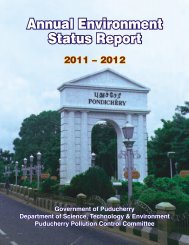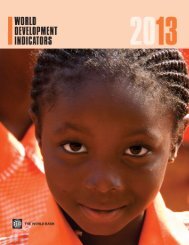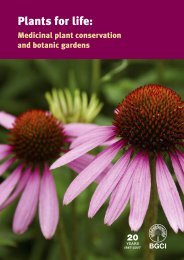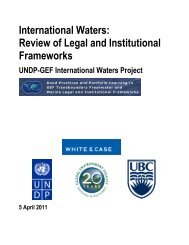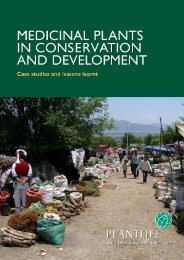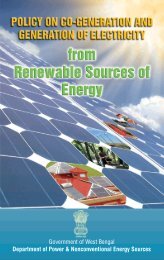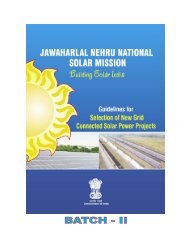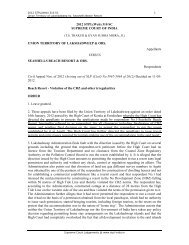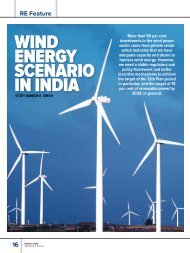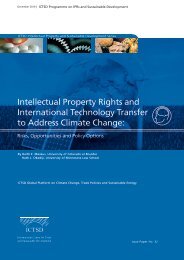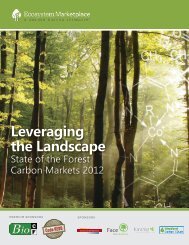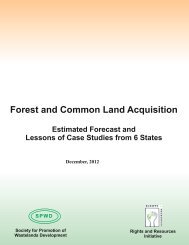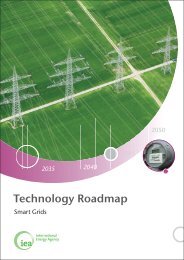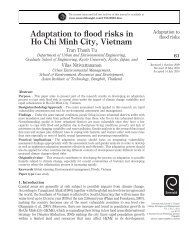DEFORESTATION AROUND THE WORLD - India Environment Portal
DEFORESTATION AROUND THE WORLD - India Environment Portal
DEFORESTATION AROUND THE WORLD - India Environment Portal
Create successful ePaper yourself
Turn your PDF publications into a flip-book with our unique Google optimized e-Paper software.
192<br />
Deforestation Around the World<br />
also shows the reason why dealings with the Waorani have been so frustrating for many<br />
international environmentalists. They resent ONHAE’s perceived lack of principles and<br />
feel that the leadership has ‘signed agreements with the Ecuadorian state and the oil<br />
companies, in apparent contradiction of their organizational positions and public<br />
statements’ (Ziegler-Otero:1).<br />
ONHAE and its successor organization, NAWE (Nacionalidad Waodani del Ecuador), since<br />
2007 therefore represent a radically new form of political organization for the Waodani,<br />
structured as required by external “western” agencies including the government and the oil<br />
companies as well as NGOs. A president and other leaders (“dirigentes” for education,<br />
health, territory, tourism, etc.) are elected by representatives of the various communities at<br />
assemblies held irregularly every 3-18 months. The communities themselves, now<br />
numbering over 40, are new social and political structures, though in practice they have not<br />
greatly altered the traditional nanicabo social system, despite boasting presidents and other<br />
leaders. Thus new communities continue to form, often with only one or two families who<br />
have moved away from another community because of disagreements or to gain access to<br />
new resources including external assistance. Often the community presidents are not the de<br />
facto authority in the community, and a number of “big men” act as local leaders<br />
negotiating with ONHAE/NAWE, with other influential Waodani individuals and<br />
communities, and with external actors. To the degree that external actors (government<br />
representatives, oil companies, NGOs) make agreements with these “big men”, obviously<br />
the strength of ONHAE/NAWE is undermined, and the generation of a Waodani<br />
conscience and unity falters.<br />
External actors assume that ONHAE/NAWE intermediate on behalf of the Waodani<br />
people, as a form of representative democracy whereby the leaders make decisions that<br />
express the will of the people, and sign agreements including land titles with<br />
ONHAE/NAWE on behalf of the Waodani people as a whole (Ziegler-Otero 2004). In<br />
contrast, the Waodani people themselves consider ONHAE/NAWE’s primary role to be<br />
the negotiation with oil companies (primarily Maxus/Repsol because individuals and<br />
communities negotiate directly with the other oil companies whose concessions overlap<br />
with the particular community’s land) and the administration of the oil company-financed<br />
projects (distribution of benefits including health services, school lunches and other<br />
education services, and other goods and services). A traditional mark of Waorani<br />
leadership is the ability to get goods from outsiders and the Maxus/Repsol negotiation<br />
reaffirms the traditional orientation of their leadership (Ziegler-Otero 2004:129). The<br />
people in the communities do not expect ONHAE/NAWE to make other kinds of<br />
decisions on their behalf (High 2006). Thus, one primary challenge for today’s NAWE is to<br />
provide – in addition to the social services – technical services that add value to the<br />
organization and involve them in overall conservation and development planning for<br />
Waodani holdings.<br />
Whereas fire is not the danger in eastern Ecuador that it poses in Brazil, nonetheless<br />
colonization and road-building fuel deforestation. For the Waodani, the colonization has<br />
historically been Kichwa migrants settling along the Napo River on the north who gradually<br />
have deforested land towards the interior, and Kichwa and other migrants settling along the<br />
Curaray River on the south with the same effect (Trujillo León 1996). Oil production has<br />
driven colonization (Kichwa, Shuar, and mestizo colonists) by penetrating the very heart of



